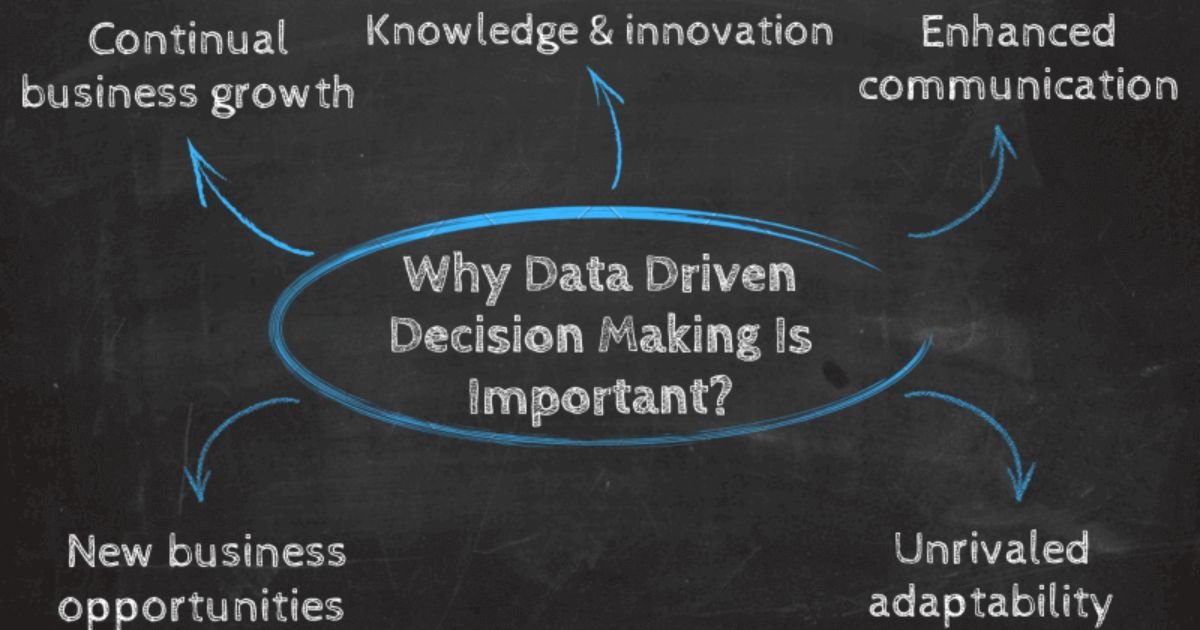In businesses, daily decisions shape the course of operations. These daily decisions are the driving force behind business success. With the rapid advancements in technology and data Demand for Decision Scientists deluge, making data-driven decisions has become necessary for businesses to thrive.
Due to the volatility and complexities involved in modern businesses, analytical rigor and strategic foresight are needed. Here comes decision scientists.
Read More: Verified Binance Account

These professionals help companies with data analysis, technology, and business strategy formation. With their multifaceted expertise, companies can overcome challenges and seize emerging opportunities.
In this blog, we’ll discuss the reason behind the increasing decision scientists demand and what makes them an asset for companies.
Shift From Intuition-Based to Evidence-Based Decision-Making
Inituton-based decision-making has become a thing of the past. Traditional decision-making models, once effective, no longer deliver value to businesses. Trusting intuition-based decision-making today, when data is the power source, may give you only some of the picture. Demand for Decision Scientists For example, back in 2000, when Blockbuster was offered to buy Netflix, they declined, believing brick-and-mortar stores were irreplaceable. They went bankrupt in 2010.
On the other hand, using data-driven strategies, Netflix shifted to streaming and created hit content. Their data-focused approach showcased the power of data in successful business decisions.
Data-driven businesses are successful because they utilize real-world data to gather insights for a company’s good. Based on a PwC survey involving over 1,000 top executives, organizations heavily reliant on data reported a threefold increase in decision-making efficacy compared to their less data-focused counterparts.
Role of a Demand for Decision Scientists
A decision scientist is responsible for informed decision-making within an organization by having a comprehensive perspective on business challenges. They utilize diverse data analysis methods, Demand for Decision Scientists visual displays of data, and insights into consumer behavior to formulate precise, data-driven solutions.
Typically, a decision scientist integrates multiple data streams, insights, and specific business inquiries to steer decisions. These professionals utilize their analytics, statistics, and coding skills to process and interpret voluminous data.
Typically, a decision scientist role involves:
- Collaborating with stakeholders to discover potential opportunities for employing data in enhancing business operations.
- Extract and analyze data from organizational databases to refine product design, marketing strategies, and overall business plans.
- Evaluate the reliability and precision of new data sources and data collection methods.
- Employ predictive models to enhance customer interactions, boost revenue, optimize ad targeting, and achieve other business objectives.
- Establish a framework for A/B testing within the company and assess model efficacy.
- Collaborate with varied teams to deploy models and oversee results.
- Institute systems and tools to track model efficiency and ensure data integrity.

Drivers Behind the Growing Decision Scientist Demand
The decision scientists demand will only continue to grow with time. Thanks to their analytical skills and decision-making capabilities, Demand for Decision Scientists they prepare businesses for upcoming challenges and figure out the best possible solutions for complex business scenarios. Here are some reasons why decision scientist demand is increasing:
Explosion of Data Availability
The deluge of data arising from heightened digitization, is overwhelming businesses worldwide. Beyond the sheer volume, the complexity and variety of this data – from transaction records to social media posts – add layers of intricacy. Moreover, as IDC highlights, the anticipated rise in unstructured data by 2025 emphasizes the challenge.
Businesses need professionals who can understand, analyze, and interpret these vast datasets to utilize this data maze and extract actionable insights. That’s when decision scientists, with their skills at Demand for Decision Scientists translating this information chaos into coherent strategies, come into the picture. Their skills bridge the gap between raw data and effective decision-making.
Complex Business Environments
The complexities in global markets are growing with each passing day. Businesses face challenges ranging from international regulatory variations to culturally diverse consumer behaviors. Using decision science, businesses can sail through the increasing intricacies. Decision Demand for Decision Scientists scientists blend data analytics, industry knowledge, and strategic thinking to help businesses anticipate shifts, adapt to changes, and maintain a competitive edge.
Competitive Advantage through Data
Due to the rapidly increasing competitiveness in the global market, thriving requires companies to keep innovating and seeking advantages. There’s no better way than leveraging data for business decisions and turning it into a strategic asset. Companies no longer seek data for operational efficiency but to gain a competitive edge. Decision scientists Demand for Decision Scientists empower organizations to extract value from data. These professionals help companies identify opportunities for innovation, recognize unexplored markets, or understand consumer desires before the competition does.
Advancements in Technology and Tools
Thanks to technological advancements, more sophisticated tools and platforms in data analytics and machine learning are coming to the forefront. While these tools are more accessible, they require skilled professionals for effective utilization. Decision scientists know what it takes to Demand for Decision Scientists leverage these advanced technologies. They can help integrate diverse data sources and conduct intricate analyses that were previously unattainable.
Need for Risk Management
Risks stand around every corner in the business world. Companies must be prepared for unforeseen challenges, from market volatility to unexpected disruptions. Decision scientists can help companies predict and mitigate business risks. They can analyze historical and real-time data to predict potential pitfalls. With their insights, businesses can avoid hazards and strategize for future growth.
Regulatory and Compliance Pressures
Rigorous regulatory and compliance demands also characterize the modern business industry. Organizations are under pressure to ensure transparency in their operations and decision-making processes. Demand for Decision Scientists Furthermore, with increasing concerns about data privacy and rights, businesses need experts to guide them through the intricate regulations.
Challenges Faced by Industries in the Absence of Decision Scientists
In the absence of decision scientists, businesses face several challenges:
- Adherence to outdated models: Companies might still follow outdated business strategies that need to align with contemporary market demands.
- Missed data insights: With the necessary expertise, crucial insights embedded within vast data sets are noticed.
- Financial Missteps: A lack of informed decision-making can result in detrimental financial consequences.
- Inflexibility: A pronounced struggle to adapt swiftly to ever-evolving market trends makes businesses more susceptible to external threats.
- Competitive Disadvantage: With timely and accurate data interpretation, companies can stay caught up in the competition.

Conclusion
The decision scientists demand will continue to grow in the future. With their analytical skills, business acumen, and strategic thinking, they can guide businesses toward data-driven, optimal decisions. Demand for Decision Scientists The surge in decision scientist demand highlights a broader trend: businesses recognizing the value of grounding their strategies in evidence and analytics.
Where intuition-based decision-making fails, decision science proves to be a savior. As the complexities of the global market Demand for Decision Scientists continue to grow, the expertise of decision scientists will undoubtedly remain at the forefront of progressive business practices.
FAQs
What is decision science?
Decision science is a multidisciplinary approach where data-driven insights are analyzed and utilized to form business decisions. This method also uses human judgment to evaluate and guide business decisions.
What does a decision scientist do?
A decision scientist’s responsibilities revolve around analyzing big data, scraping meaningful insights, collaborating with other stakeholders to pinpoint better prospects, and forming data-driven decisions.
Why is there a high demand for decision scientists?
There’s a high decision scientists demand because of the inefficiency of traditional intuition-based decision-making, data explosion, the Demand for Decision Scientists potential of data-driven insights, and its role in business decision-making.
What skills are required by decision scientists?
Some must-have skills for decision scientists are advanced mathematics, machine learning, statistical science, decision analysis, risk analysis, cost-effectiveness analysis, business knowledge, etc.
What does a career in decision science involve?
A career in decision science involves analyzing complex business challenges using data. Decision scientists utilize quantitative Demand for Decision Scientists methods, data visualization, and behavioral insights to guide strategic choices.